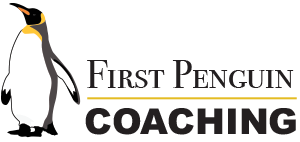Preparation is key before interviewing for a job, but how should you go about it? Refer to the following six areas to get you started.
People:
Find out the names ahead of time of everyone interviewing you and research them online. Best practice is to start with LinkedIn, but they may not have a profile. You can check the company’s website or do a Google search but avoid checking other social media profiles (i.e. FB/Meta) as this can cross personal boundaries. The purpose for this research is to try to find commonalities between you and the interviewer (education, experience, group, etc…) that might make sense to mention during the interview and help with relationship building.
Clients often ask me, how do you really find out about company culture? I suggest asking about culture throughout the interview process. If it’s a one on one interview, you can ask “what is the culture like here?” or “what do you like best about working here?” You can dig deeper by asking, “If you could change one thing about ________ (this organization, your job, the leadership, etc…), what would it be?” You can also use LinkedIn as tool to find connections who know people at the company or who’ve worked there to get more candid feedback about culture.
Personal Branding:
Your personal brand is your unique combination of skills and experiences that make you who you are and differentiate you from other candidates. Your brand should already be reflected on your LinkedIn profile and resume but also needs to be articulated clearly during interviews. Interviewers will often ask, “Tell me about yourself”. This vague statement is a perfect time to use your personal branding statement.
In Recalculating: Navigate Your Career through the Changing World of Work, Lindsey Pollak shares a helpful framework in responding to the T.M.A.Y. question. She suggests breaking the answer into three parts: 1. Here’s what I know how to do 2. Here’s what I’m interested in 3. Here’s how I can meet your needs. Versions of your personal branding statement can be used to respond to similar open-ended questions such as, “Why do you want to work here?”
Position Fit:
According to the Job Search Manifesto, interviewing is only evaluating two areas: competency and culture fit. It’s important to customize answers based on the job description (and other information that you’ve gathered) emphasizing your competency for position. Most interviewers are familiar with the STAR method of preparing answers (situation, task, action, & result). For more impact, one expert suggests adding a “T” to the STAR method and ending your response with a Tie-in (STAR-T) statement tailored to the specific role.
A recent Harvard Business Review article shares that “open positions exist because an organization needs someone to improve the current situation — to build better products, create operational efficiencies, attract new clients, or improve departmental performance.” What challenges can you help this employer solve? Make sure that your stories and examples highlight how your skills and experiences best qualify you for the position.
Prepare Questions:
Remember that you are interviewing the company just as much as they are interviewing you. In addition to preparing answers to their questions, you should prepare questions to ask each interviewer. In the early stages (recruiter/screening), you’ll want to ask questions such as “how will the interview process work?”, “who will I meet with?” and “what types of topics will be covered?” Always ask about the next step and the appropriate follow-up. You can also ask how many candidates they’re planning to interview or where they are in the process if they’ve already started.
For interviews with the hiring manager, you’ll want to ask more in depth questions such as “What are your biggest challenges this year (or rest of year)?”, “What qualities do you value most in a team member?”, or “What are the expected outcomes for this role in the first six months?” With the panel interview, the Job Search Manifesto suggests, “What are the key challenges and opportunities for your team this year?”, “What tools and resources are essential to know to be a strong team member?” and “What steps would you take, if you were me, to ramp up and quickly help the team?”
It’s also good to ask if the job description has changed since posted. My client recently made it to the second interview only to discover that the description wasn’t accurate, and they were wanting more management experience. Clarifying this information up front may save you time.
Practice. Practice. Practice.
There are many ways that you can do this including scheduling a mock interview with a career coach. You can also find a friend or fellow job searcher to practice articulating your answers to common questions. As well, you can take advantage of online interview preparation tools such as LinkedIn’s feature or you can record yourself using webcam, video recorder, or smartphone.
Like any skill, the more you interview, the better you get at it. Not every interview converts to an offer. Trust in the process and learn something from each interaction.
Positive Mindset
Prior to your interview, it’s important to get into the right mindset. Again, you are interviewing them too, so think of it as a conversation to determine a good fit on both ends! As well, get into a calm space through a breathing exercise, meditation, or whatever method works for you. I suggest to clients that they reach out to handful of people who know them best (family, friends, or colleagues) and ask what they think are their superpowers or greatest strengths. This is a great confidence builder prior to an interview. You can also reread positive feedback provided to you in the form of performance reviews, LinkedIn recommendations, or client testimonials.
Best wishes on preparing for your next interview!
